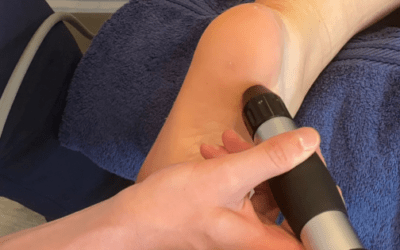Cartilage (meniscus) injury – can physiotherapy help?
Our physiotherapists see a lot of patients with this common knee injury. Most commonly affected are sports players i.e football and rugby players plus skiing injuries too. You can also get a degenerative meniscus injury which tends to occur as we get older and comes on gradually.
The knee is a vulnerable joint. Ligaments and cartilage can be injured during tackling, when changing direction whilst running, within rucks and mauls and twisting while skiing too.
What is a meniscus?
There are two areas of cartilage tissue within the knee. There is the menisci which are c shaped and sit on top of the articular cartilage which covers the ends of the bones at the knee joint.
Each knee joint contains an inner and outer meniscus (a medial and lateral meniscus). The menisci act like shock absorbers, help to make the knee stable and help to make the knee movements smooth.
When people talk about a cartilage injury to a knee, they usually mean an injury to one of the menisci.
Symptoms
- Pain and tenderness along the joint line
- Some history of a twisting injury but not always
- Clicking and popping of the knee
- Locking of the knee joint
- Long-term, meniscal damage causes wear and tear on the joint surface, leading to osteoarthritis of the joint.
There are clinical tests, including McMurray and Thessaly test which we can perform to confirm a meniscus tear.
Here is a testimonial from one of patients who had a meniscal (cartilage) tear;
“I am a 59 year old man who went to the doctor with a very painful right knee that was preventing me from working in the garden especially digging my beloved veg plot. Also I was unable to drive very far without significant pain to the point I was having to straighten my leg frequently to ease the pain or even stop and gently flex my knee until I was OK to carry on.
I was walking with a pronounced limp and the doctor was wanting me to go for X-rays and other investigative treatment to identify the issue, however I have medical Insurance and to speed things up I decided to go through the Insurance.
My insurance company sent me straight to Physiotherapy after discussing my symptoms and guessing I had a meniscal tear. Physio-logical was recommended as the most local physiotherapy clinic to me so I went along full of scepticism that I was wasting my time and feeling I would end up needing some form of surgical procedure to rectify my problem.
I was greeted by Natalie March on arrival and instantly put at my ease as I had explained to me what the approach would be and how the cause of my pain could be identified and that if it was felt physio was the correct treatment or not. This went by way of explanation of what a meniscal tear was through use of an anatomical model of a knee and how physiotherapy could heal it.
Within two weeks (two visits and two weeks of prescribed exercise) it became clear that the treatment was having a very beneficial effect and my scepticism evaporated as my knee continued to improve. After the initial 4 weeks it was agreed although I had improved greatly there was still further benefits to be gained by both continuing treatment and changing my exercise regime.
Today after 8 weeks of treatment and exercise I can say my knee is fully healed with just a slight residual muscle imbalance as a result of walking for months trying to alleviate the pain, so I have adopted the prescribed exercises as just part of my daily routine as this will help safeguard both my knees from going forward – and I really do appreciate being able to run, drive, dig, kneel etc. with no discomfort.
A big thank you to Natalie and Physio-logical who have really made a difference to me and allowed me to regain confidence in my own fitness and shown me that joint damage does not automatically require surgery.” John
So how can Physiotherapy help?
If the tear is in the outer portion of the meniscus then it is likely to heal and respond well to physiotherapy treatment and exercises as that area has blood supply.
If the tear is in the inner meniscus they do not usually heal due to a lack of blood supply, these tears may require surgery.
Developing strong leg muscles stabilises the knee which helps to reduce the risk of cartilage damage. It also offloads the knee joint and encourages an increase in blood flow to the area and therefore healing of the meniscus.
So the best treatment for a meniscal tear is physiotherapy exercises, ultrasound, joint mobilisations, and soft tissue massage.
Please be aware of your body and take advice from your GP before exercising if you have a knee injury then please send us an email (enquiries@physio-logical.net) for advice and guidance.
| Knee Flexion (Bend)
|
|
| Straight Leg Raises
|
|
| Standing Balance (Proprioception) |
|
If you have any aches, pain or niggles or even want advice about what you can do to reduce the risk of injury then please get in contact with us via enquiries@physio-logical.net, call 07835 712306 or book online.







